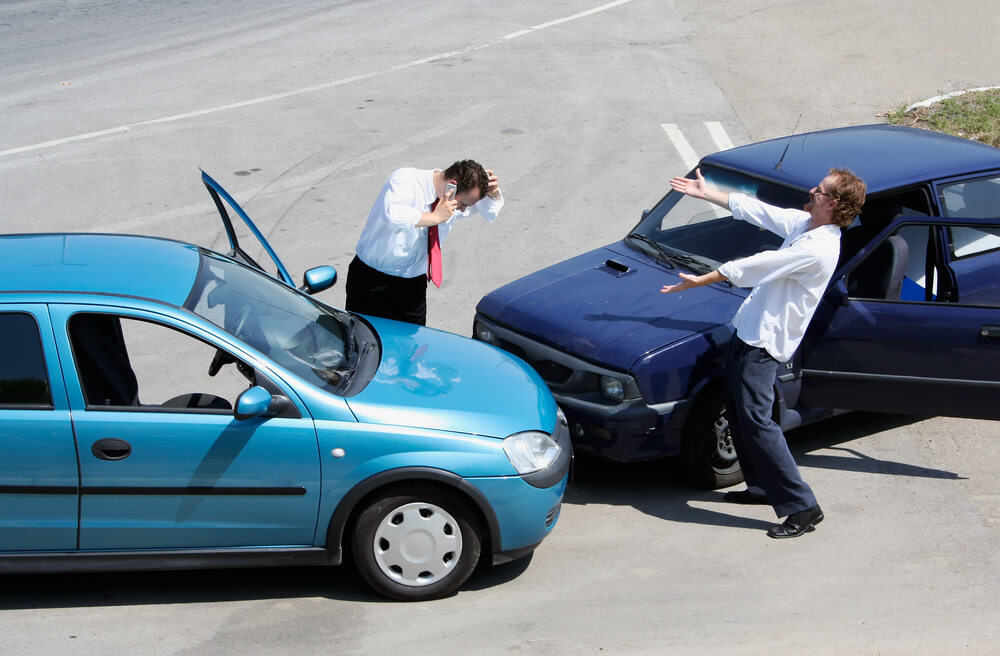Call your insurance company from the scene of the accident as soon as it is safe to do so. They will walk you through the next steps and tell you what information you need to send them.
If your car is not drivable, your insurer can advise you on the next steps such as transportation for you and your car. Depending on your policy coverage, your insurer can arrange for your car to be towed, as well as reserve a rental car for you.
If you do not call them, you won't know how they can help and you may spend more money than is necessary.
Claim Specialist
Once you report your claim to your car insurance company, they will assign a claims professional, such as an adjuster, to work with you. The adjuster will represent you in any discussions with third parties, other insurance companies, and any other people involved. They will investigate the circumstances and work for you to get the claim settled and your vehicle repaired.
You will likely meet with your claims adjuster in person or have a discussion on the phone. If your car is at a garage to be repaired, the claims adjuster will contact the garage and review the estimate of repairs.
Your claims adjuster may specify the garage that will repair your car. Sometimes insurance companies prefer certain garages because they may offer guarantees on work. In addition, if you need a rental vehicle while your vehicle is being repaired and you have the insurance endorsement for rental vehicles, your claims adjuster can make the arrangements.
The claims professional will also review any potential personal injury claims and handle payments that need to be made as well as approve costs for repairs.
Always provide the insurance claims person any information they require to make sure the claim moves quickly. The more information they have about the accident, the better they will be able to help you and avoid delays. The claims professional is there to answer any questions, including when your payment will be made and what to expect.
Diminished Value Claim
A partial loss is when your vehicle retains some value after an accident. However, once your car is in an accident, aside from the normal expected repairs, you may suffer a greater financial loss and be eligible for additional compensation. Therefore, you may want to consider making a diminished value claim, which is affected by your specific situation and your state of residence.
Total Loss Claim and Gap Insurance Coverage
If you are concerned about a total loss, which means the vehicle damage will exceed the vehicle value, you may want to ask your adjuster about the gap insurance part of your claim. Gap insurance is an amendment added to your policy which would have been purchased with your initial coverage.
You will also want to know how the total loss is determined and the time frame for settling the claim. Understanding realistic timelines helps you manage expectations involving a claim and avoid frustration.
Cost of Car Repair and Claim Payment
Once the adjuster has concluded their research, they should share the estimated cost to repair your vehicle. You'll also find out if there is any deductible you will need to pay and how the insurance claim will proceed.
The estimate would normally outline the work to be done, as well as if the insurance company will use aftermarket or generic parts. Once you and the adjuster agree, the work can begin.
Note that if your insurance company does not approve repairs, you may not get paid. As part of your insurance contract, you need to work with the insurance company in allowing them to assess the damage and work on agreed settlements.
Never accept, offer, or approve any repairs until your insurance company has had a chance to review it. When you want an insurance company to pay for damages, part of the agreement is that you hand over control of the situation to them. Do not make any commitments on their behalf and never make repairs before you are approved because these expenses may not be reimbursed.
Coverage for a Car Accident or Claim
Claims can be paid from the comprehensive coverage, collision coverage or any of the minimum car insurance requirement sections, such as liability. Claims may also be paid from multiple sections of your policy, depending on the circumstances of your car crash. Your insurance company can provide coverage based on the provisions of your car insurance policy regarding who is responsible for the accident and the type of damage that occurred.
Your insurance company is there to represent you and deliver on the promise in the contract to cover your damages. You should not need to coordinate all of the details. Your claims adjuster should leave you feeling taken care of and that they are on your side.
Problems With a Claim
The insurance company is supposed to help you, and, as a consumer, you have the right to a fair and expedient claims settlement and customer service. But if you have problems communicating with your claims adjuster or don't understand something, speak to your insurance representative or agent. You could also inquire whether the insurance company has an ombudsman or claims service supervisor. Usually, issues can usually be resolved if you run into trouble during a claim and you speak up.
If you feel like things are being neglected or are taking too long, contact your state commissioner's office to find out what you can do. Calling your state commissioner before you hire a lawyer may save you money and rectify any claim issues. You can even have them help you file a complaint with the insurance company.
If you aren't happy with the service at the end of your claim, you might want to speak to an agent about changing insurance companies to one with high service ratings for claims

